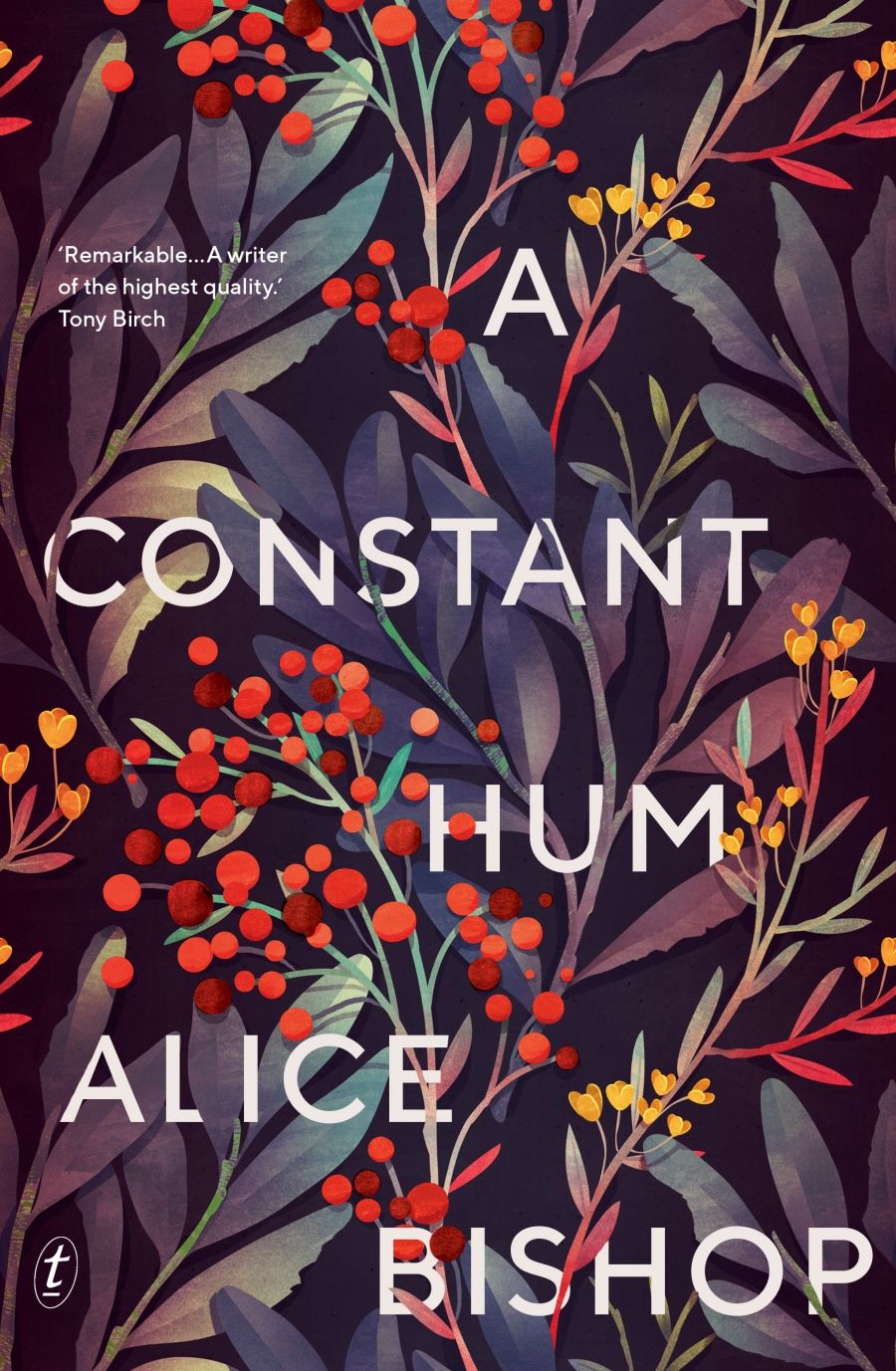
- Free Article: No
- Contents Category: Fiction
- Review Article: Yes
- Online Only: No
- Custom Highlight Text:
Thanks to the internet, the 24/7 news cycle, and social media, certain books are preceded by their reputations. They arrive freighted with so much publicity hype that reading them with fresh eyes is almost impossible. A Constant Hum is one such book, very much the product of a reputation established well before publication, due to the airing of individual stories in places like Seizure and Meanjin, along with several prizes and shortlistings.
- Featured Image (400px * 250px):

- Book 1 Title: A Constant Hum
- Book 1 Biblio: Text Publishing, $29.99 pb, 240 pp, 9781925773842
If you are one of the few readers who have not heard of this book, a quick precis: A Constant Hum is short fiction based on one of Australia’s worst contemporary disasters, the Black Saturday bushfires of 7 February 2009, in which 173 people died and about 2,000 houses were destroyed. The first question is, how does an author – any author, but especially an emerging one – confront these shocking details and then fictionalise them? How does she turn personal tragedy on such a scale, including her own, into fiction? I read these stories fearing that the author was going to trip up, that they would collapse under the weight of their own emotional burden, that they would lapse into sentimentality.
Arranged in three sections, the book comprises forty-seven stories. This may seem a lot for one collection, but some are so short they are not even stories, just a paragraph or a few sentences. They are wisps of conversations, thoughts, or observations, like the remnant ash of the aftermath of a bushfire, floating briefly past, never settling. Nevertheless, I grasped one of these, ‘Coppering’, which is less than a page long. Here is the opening:
You remember mostly, three am: they found our neighbours in clusters, mostly in amalgam fillings and tyre rims trickled into what looked like snowy earth – silvers, gunmetal greys and black so petrol-shiny you’d think of a currawong’s wing, of a bush pigeon’s neck, flecked.
This one sentence is emblematic of everything that Bishop seems to be trying to achieve in this book. You need to reread prose like this, to realise the author has knocked you down with that phrase, ‘mostly in amalgam fillings’, and demanded your attention. What is it that might actually look like ‘snowy earth’? How many currawongs or bush pigeons survived this holocaust? And then there is the disturbing effect of that word ‘petrol’.
 Alice Bishop (photograph by Leon Bishop)
Alice Bishop (photograph by Leon Bishop)
This is poetic prose, but also rough, jarring, as if designed to keep us on our toes. It is crunchy with punctuation, adjectives where normally you would not want them, words repeated where an editor might have itched to cut. But the cumulative effect is of capturing the unsayable, articulating the unthinkable – of giving voice. Trauma often results in silencing, but Bishop’s remarkable achievement is in puncturing those silences. She allows her survivor characters to speak to us in voices frank and tender, chaotic and bewildered.
The stories commence with more oblique pieces in the first section, ‘Prevailing’. A woman is caught shoplifting in Woolworths on the anniversary of the bushfire weekend; a man is obsessed with chainsawing new growth around his new home; a schoolgirl who has lost her mother and aunt is asked to list three things she would save from a burning house. By the final section, ‘Northerly’, things have shifted gear into more physically confronting territory, dragging us back to the actual catastrophe, its acrid smells – burnt plastic shoes, rubber soles – and ultimately its eerie emptiness: ‘there’s no bush left to muffle anything anymore’. Set three days after the fires, ‘Highway Lines’ portrays the quiet anguish of a woman in a Best Western motel, driving a rental car, one string bag containing all her belongings. The real hurt is knowing that her husband ran off from the fire that destroyed their home and left her there. ‘Kindling’ gives us a man tended by a community nurse who has to pick melted cotton sock fragments from feet charred from trying to save his cows.
Many of these voices are affectless, like the schoolboy narrator of ‘Woodwork’ who remarks blandly that terminally ill kids are often lavished with gifts but that his two dead brothers never received anything.
Perhaps reporting on what has happened is all that can be expected. Alice Bishop leaves it up to us to process this. These are brave, heartbreaking stories told with a mix of ardour and pragmatism. Despite my early suspicions, all that praise is warranted.


Comments powered by CComment